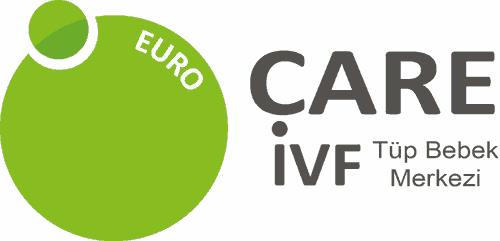 Sperm and egg quality are one of the most important factors when it comes to fertility and getting pregnant. There are plenty of things men can do to improve their sperm count and health. Women, on the other hand, can’t do anything about the number of eggs they have left in the ovaries. However, there are a number of proactive steps they can take to improve the quality of their eggs, and by doing so, to make it easier to conceive naturally.
Sperm and egg quality are one of the most important factors when it comes to fertility and getting pregnant. There are plenty of things men can do to improve their sperm count and health. Women, on the other hand, can’t do anything about the number of eggs they have left in the ovaries. However, there are a number of proactive steps they can take to improve the quality of their eggs, and by doing so, to make it easier to conceive naturally.
What exactly is sperm and egg quality?
Egg quality refers to the ability of the egg to produce a healthy pregnancy and baby. A normal, healthy egg has 23 chromosomes and when combined with sperm (which also has 23 chromosomes), it creates an embryo (fertilized egg) containing 46 chromosomes in total.
Sperm quality is defined as the ability of sperm to accomplish fertilization. Whether sperm will fertilize a mature egg or not depends on the following three main factors:
- number of sperm (sperm count)
- shape of sperm (morphology)
- movement of sperm (motility)
What can cause low sperm quality?
Various health issues can contribute to low-quality sperm, including:
- Hypothalamic dysfunction
- Pituitary gland disorders
- Testicular disorders
- Sperm transportation problems
- Age (especially after age 50)
- Lifestyle and environmental factors
Factors that negatively affect egg quality
Egg cells are very fragile and can be easily affected by both internal and external factors, such as:
- Age (especially after age 35)
- Genetics (e.g. low egg count at birth, early menopause)
- Toxic environmental exposures
- Prolonged stress
- Unhealthy lifestyle habits
- Medical conditions (e.g. cancer)
- Some medical procedures (e.g. ovarian surgery, cancer treatment)
- Weight outside the normal BMI
Things to do to improve your egg quality
While there may be things outside of your control, start by understanding and targeting the factors that negatively affect your egg quality. Follow the advice from our medical team of experts to boost your chances of achieving a successful pregnancy.
Lifestyle
Your lifestyle can have a positive or negative impact on your fertility, so make sure you make better choices, like:
- Eating healthily
- Avoiding cigarettes and alcohol
- Achieving/maintaining a normal BMI
Consider complementary therapies
Acupuncture has been shown to improve blood flow, which in return can improve the flow of oxygen and nutrients to the ovaries (and egg cells). Other benefits of acupuncture include reducing stress, relieving pain and improving mood.
Egg quality improving foods
Eating as if you’re already pregnant can actually help prepare your body for pregnancy. If you’re trying to conceive, consider including the following foods on your menu:
- Avocados
- Beans and lentils
- Nuts and dry fruits
- Sesame seeds
- Berries
- Green leafy vegetables
- Ginger
Supplements for egg health
Supplements that can improve the quality of your eggs include:
- Folic acid
- Zinc
- Selenium
- CoQ10
- DHEA
- Vitamin C, B, E and D
- Fish oil and omega-3 fatty acids
Ways to improve sperm quality
There are also a number of ways you can improve your chances of becoming a dad.
Lifestyle
Following a pro-fertility lifestyle will help you avoid nutrient deficiencies or low testosterone levels, which may contribute to infertility. These include:
- Exercising regularly
- Sleeping 7-8 hours each night
- Limiting stress
- Avoiding saunas and hot tubs
Sperm-boosting foods
These foods will give your sperm a boost and will improve your chances of conceiving:
- Avocado
- Asparagus
- Broccoli
- Green leafy vegetables
- Lentils and beans
- Salmon, cod, haddock
- Meat
- Seafood
- Olive oil
- Walnuts
- Citrus fruits
- Dark chocolate
Supplements to increase sperm count
Supplements that have been shown to positively affect sperm count include:
- D-aspartic acid (D-AA)
- Coenzyme Q10
- Vitamin E, C and D
- Calcium
- Zinc
- Multi-antioxidant supplement
- N-acetyl-cysteine
- Selenium
What if I have low-quality eggs or sperm?
Poor egg/sperm quality does not necessarily mean you cannot get pregnant. There are couples who despite having low-quality eggs or zero sperm count still managed to successfully get pregnant and give birth to a healthy child. However, if you’re having difficulty getting pregnant, it is important to consult a fertility expert. They will order tests to get an accurate picture of your medical situation and will provide guidance so you make informed family decisions.
Treatment options for low sperm and egg quality
Based on the test results and your medical history, our doctor may recommend one of the following treatment options for infertility:
Treatments for women
IVF
During an in vitro fertilization (IVF) cycle, women with poor quality eggs will be administered hormonal injections followed by an egg retrieval procedure. At this point, patients may decide to fertilize or freeze their eggs.
Egg donor IVF
Egg donor IVF is another treatment option for women with low-quality eggs. High-quality donor eggs are fertilised by the male partner’s (or donor) sperm and are either implanted or stored for future use.
Additional treatment options may include hormonal therapy or surgery.
Treatments for men
IVF with ICSI
With IVF, eggs are fertilized in a special laboratory and are then transferred to the patient’s uterus to establish a pregnancy. Intracytoplasmic sperm injection (ICSI) is a sophisticated technique that successfully overcomes low sperm count and sperm quality issues. Using ICSI, individual sperm cells are injected into each mature egg to achieve fertilization.
Sperm donor IVF
Men facing severe male-factor infertility (e.g. azoospermia) are often recommended IVF with donor sperm. The eggs are fertilized with sperm from the chosen donor through ICSI. The best embryo is then transferred to the female partner’s uterus or is frozen for future treatment cycles.
Other approaches may include hormonal therapy or surgery.
Start your journey to parenthood today!
If getting pregnant is your top priority, it is important that you and your partner look after your reproductive health, which starts from your egg and sperm. Before changing your diet or lifestyle, talk to a doctor, nutritionist or fertility specialist.
If after twelve months of trying (or six months, if you are over 35) you’re still unable to conceive, seek help from a fertility specialist. Based on the results of your infertility evaluation, our EuroCARE IVF specialist will recommend the best treatment for you (and your partner), so that you can achieve your dream of parenthood.
